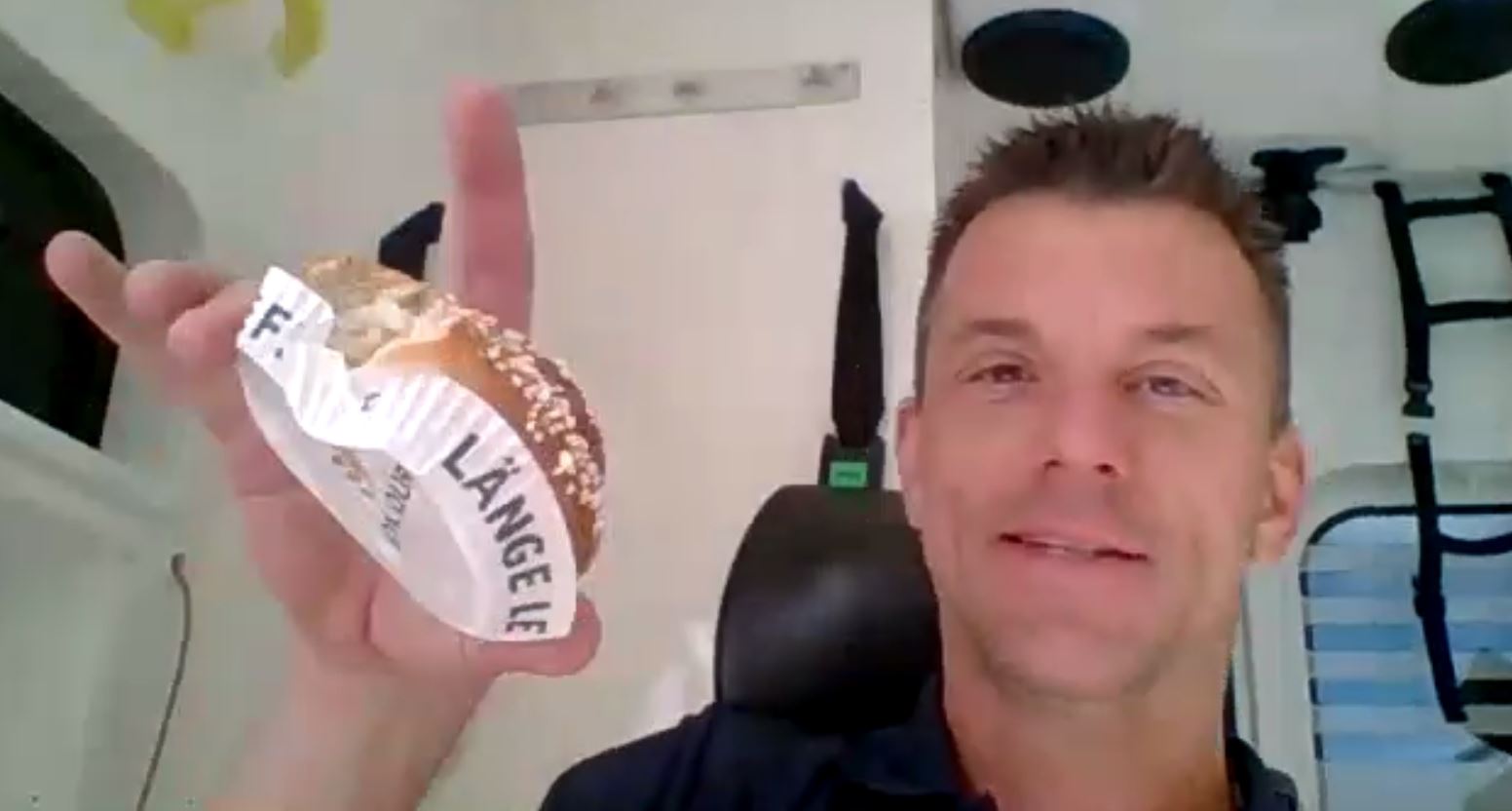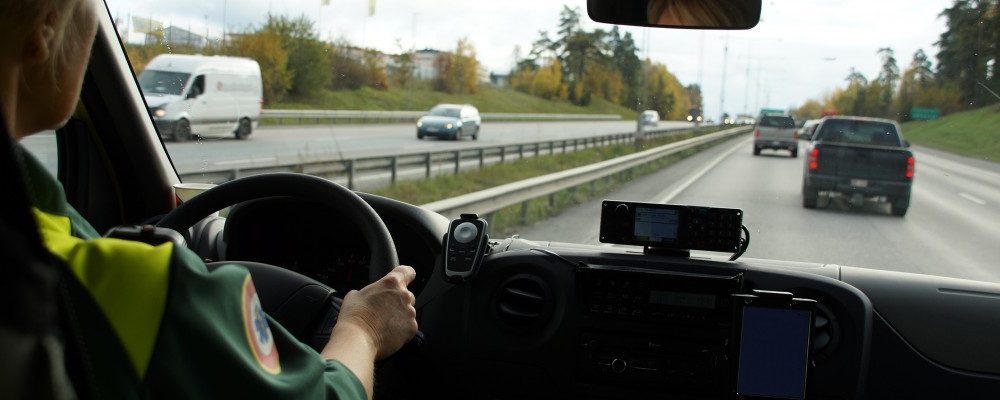
When Lundensaren calls alumnus Lucas Johansson, the Regional Manager for the Ambulance Service Samariten, he is sitting inside an ambulance, parked at a rest stop along the road, with a cup of coffee and a cinnamon roll. He is taking a well-deserved break…
So, you are not working from home today?
– No, I am actually driving an ambulance today. In corona times, we are all assigned different tasks than what we would normally be doing. Today, I am driving this ambulance up north. Due to a shortage of vehicles up there, we need to take one from here to there.
Being the Regional Manager, would you still be driving an ambulance during “normal” times?
– Normally, I would be working more in the office. However, during these times, it is very important for us mangers to be out on the field, encouraging our staff and be there to answer any questions, as well as support the crews that are out there working with the coronavirus.
While at Lund University, you were studying to be a specialist nurse in pre-hospital emergency care and anaesthesia. What made you choose that career path?
-Well, I was working at a museum as a technician when an older man fell down the stairs and was bleeding heavily. I stayed with him and helped until the ambulance came. I liked helping him, and that ignited an interest. Afterwards, I did some research on what was required to become an ambulance officer or a paramedic. First, I needed to become a nurse and then a specialist. So I applied to Lund University (and got in), and a few years later, I decided to also become a specialist nurse in anaesthesiology.
What are some of the biggest challenges for the ambulance service right now?
-During the summer, the intensity of our work normally increases. In general, it is a stressful time, and now we have the coronavirus to deal with on top of that. Staff have been under stress for a very long time and they are tired and need their vacation. However, we still need personnel to manage all the incoming calls and keep the ambulances on the roads.
Another challenge, of course, is getting too comfortable while the prognosis of the virus spreading is on a decline during this time of year when the weather is getting better and the sun is out. Staff must continue to be on edge and keep using their safety equipment.
Are people in the southern region of Sweden calling more often than normal right now with breathing issues?
-During the first weeks of the coronavirus pandemic, there were a lot more calls. People were very nervous, distressed and anxious, and needed to get help. After a while, people understood that the coronavirus is often not so dangerous for a young and healthy person, and then those calls decreased. Instead, we got more calls from elderly people who actually did not want to go to hospital for fear that they could contract the virus there.
After a period of time, we saw a drop in the endless calls and ambulance ER visits. Instead, people were at home, getting sicker than they had to be. So, we had fewer patients than normal, but the patients we did have were much sicker than they normally would be when calling for help.
Next week are the Midsummer celebrations in Sweden, do you have any plans?
-Well, when people go on their vacations and it is an eve (be it Midsummer or New Year’s Eve), we seem to get a lot more calls for an ambulance. So all of us who are working in the system have to go out there and make an effort. But it’s the greatest job in the world, so I will have a great evening!

